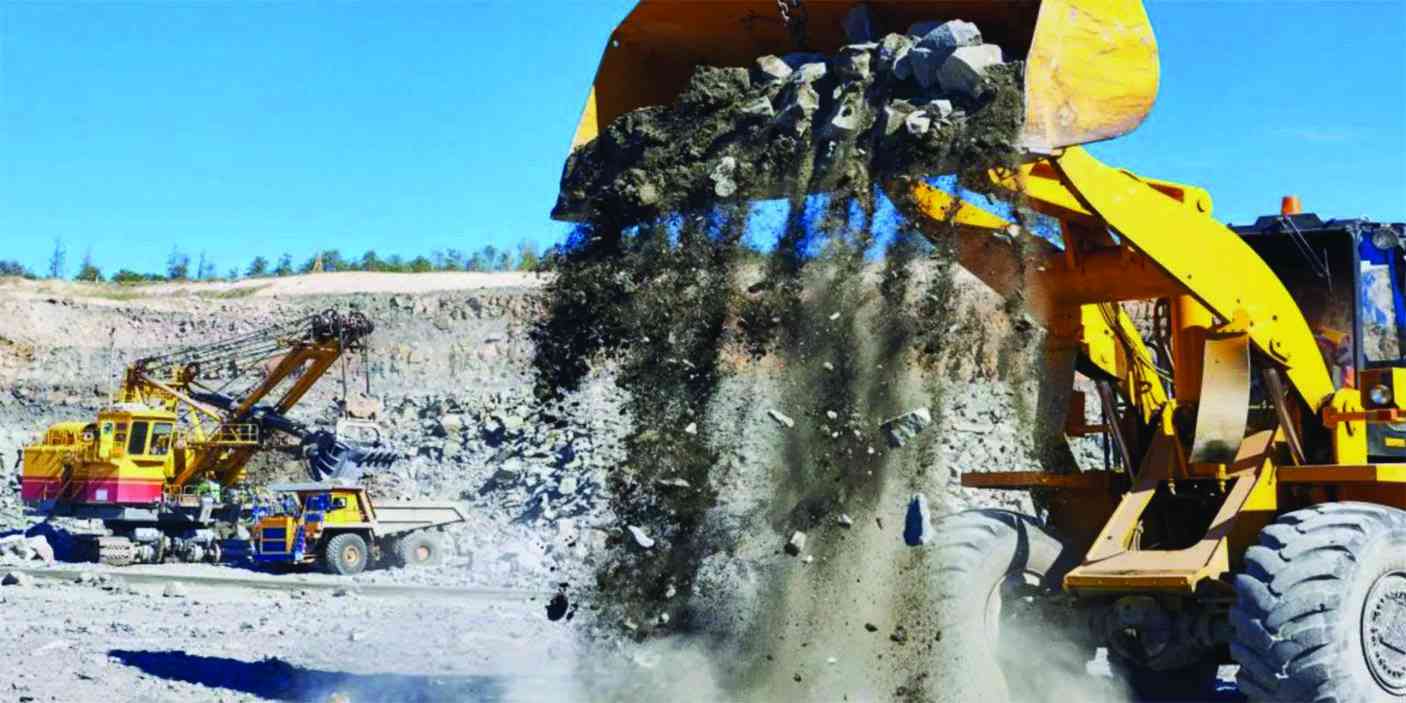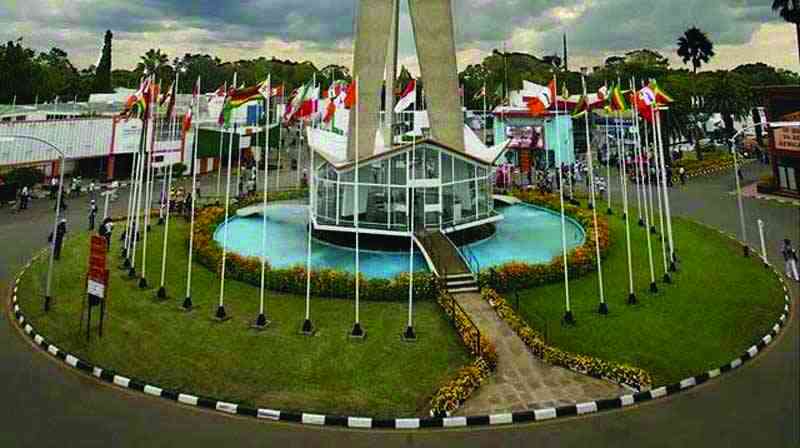
Zimbabwe has an important opportunity in lithium, creating room for becoming the world's lithium valley.
Dubbed "the World's Next Lithium Valley" in line with the worldwide
move to cleaner energy, Zimbabwe also has a nascent lithium mining business and Africa's greatest lithium reserves.
Last July, a subsidiary of Chinese mining company Zhejiang Huayou
Cobalt opened a US$300 million lithium processing facility with the potential to manufacture 4,5 million metric tonnes for export each year.
Having outlawed the export of raw lithium earlier this year, the Zimbabwean government is hoping to encourage downstream infrastructure development and become a regional processing hub for lithium-ion batteries and other climate-friendly energy sources.
President Emmerson Mnangagwa was once quoted saying: "Lithium is the mineral of the present and the future."
Its value addition will position our country as a growing and competitive player in the global lithium value chain”.
- Mavhunga puts DeMbare into Chibuku quarterfinals
- Bulls to charge into Zimbabwe gold stocks
- Ndiraya concerned as goals dry up
- Letters: How solar power is transforming African farms
Keep Reading
A further crucial downstream project is the US$1 billion Manhize integrated steel factory, which when it is operational will generate 1,2 million tonnes of steel annually.
Aiming to meet demand in neighbouring markets like Zambia and the Democratic Republic of Congo (DRC) while lowering production costs domestically by reducing steel and iron imports, the project — which is expected to be the largest integrated steel plant on the continent — has already caught the interest of local and regional off-takers.
Many countries are trying to secure critical minerals, particularly lithium, nickel, copper, cobalt, graphite, and manganese, as demand for them rises.
The International Energy Agency (IEA) predicts that by 2040, lithium demand would have increased by more than 40 times, while graphite, cobalt, and nickel demand will increase by 20 to 25 times. Prices have risen since 2021 as a result of strong demand and supply chain constraints.
According to the United States Geological Survey, Zimbabwe generated slightly more than 1% of world lithium in 2021. Zimbabwe possesses Africa's greatest lithium reserves.
According to World Integrated Trade Solutions, Zimbabwe is also a major supplier of nickel ore, with South Africa and Mozambique being the primary importers.
On the basis of the United Nations Commodity Trade Statistics Database (UN Comtrade) on international trade, Zimbabwe's nickel exports exceeded US$1,02 billion in 2022.
Zimbabwe was the world's 13th largest nickel exporter in 2021, after France, the United States, Russia, and Germany, who were ranked second, third, and fourth, respectively.
During the debate in the House of Lords last week, Tariq Mahmood Ahmad, Minister of Commonwealth and Development Office, stated that Zimbabwe has a significant opportunity since it has lithium, and all that is required is inclusivity in politics and unity.
One of the most significant issues involved with mining essential minerals in Africa is the relocation of local inhabitants. Mining firms frequently demand enormous tracts of land for their operations, forcing communities to relocate and destroying houses, farms, and other means of livelihood.
According to the Centre for Natural Resource Governance, displacement can be especially damaging for indigenous populations, which typically have strong cultural and spiritual ties to the land they are forced to forsake.
Chinese-owned mines in Mutoko have moved residents to the Makaha area, where they have been housed in substandard alternatives. These dwellings have begun to crumble, and the people lack the resources to repair them, putting their safety at risk.
Their fertile and very productive agricultural land, which used to be their source of income, has been converted into mines. They are now being driven to seek alternative sources of income in unfamiliar environments that need new skill sets.
Some were promised monetary compensation, which they have yet to receive more than five years after being displaced.
In the worldwide competition for energy transition minerals, which are intended to assist address the climate catastrophe. If mining projects are administered honestly, with respect for property rights, human rights, and openness to competitive investments, they have the ability to lead to the country's long-awaited growth and development.
Recently, Chinese enterprises, as well as local companies and artisanal miners, have rushed to acquire lithium resources. The Zimbabwean government has responded with legislation reforms and statements.
The ban on the export of unbeneficiated or unprocessed lithium, in particular, can be described as a knee-jerk reaction to the lithium scramble via repeal and change of basic material export legislation.
In 2018, the Government of Zimbabwe (GOZ) implemented an "open for business" strategy to encourage greater foreign direct investment (FDI).
For example, the GOZ has set an ambitious US$12 billion objective for the mining sector by the end of 2023, while also advocating for more investment in renewable energy.
Despite these assertions, Zimbabwe's government has not enacted enough investor-friendly measures to attract significant investment, and corruption remains a serious worry. FDI into Zimbabwe remains lower than that of its regional peers.
Additionally, debt impedes Zimbabwe's economic expansion.
Zimbabwe owes international financial institutions and bilateral debtors around US$14 billion, or roughly 66% of its GDP, of which US$6,3 billion is in arrears and penalties.
Due to its substantial public and private external debt, the nation is unable to receive official development assistance at preferential rates.
Domestic banks often only provide credit for 180 days or less, and they do not offer finance for terms greater than two years.
The Zimbabwe Investment and Development Agency (Zida) was established by the government in 2020 to make conducting business easier.
Its primary function is to act as a one-stop shop for promoting and facilitating both foreign and domestic investment in Zimbabwe.
Zimbabwe offers tax reductions for new investments made by both domestic and foreign businesses, as well as full tax deductions for capital expenditures on upgrades, machinery, and new factories, in an effort to encourage foreign direct investment.
On capital equipment, the government removes import taxes and surtaxes. By lowering regulatory expenses, it has gradually improved the business climate, but inconsistent policies and flimsy institutions have kept companies frustrated.
Particularly when it comes to agricultural land, property rights are not well protected and corruption is still rampant. Although the government has pledged to uphold property rights, it has also taken land without paying compensation.
However, it is conceivable to distribute the advantages of essential minerals to national socioeconomic growth as well as to communities and the workers who generate them.
In the end, mining essential minerals can only yield long-term advantages if it is carried out in a way that guarantees benefits are distributed fairly.
In order to build frameworks and enforce policies that prioritise the importance of the community, workers, and environment in the extraction of important minerals, mining firms, legislators, community leadership, and civil society must work together.
- Denhere is an investigative journalist. — [email protected].










